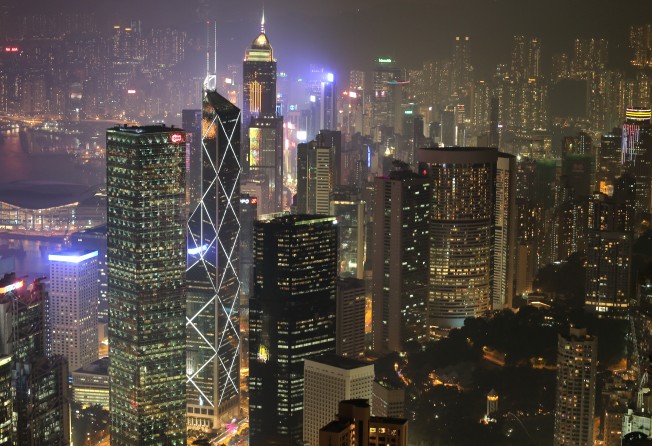HK building owners face fresh decisions
As the city seeks debate on reducing energy intensity, knowing how to frame the questions may be more important than finding the right answers

The Hong Kong government has declared that it plans to use its power and influence to affect energy use in Hong Kong. Its top line is a 40 per cent cut by 2025, a mere 10 years hence. Is this as remarkable as it first looks? Perhaps not.
First, this is a plan to cut energy intensity, not the amount of energy actually being used. (Energy intensity is the amount of energy consumed per unit of gross domestic product.)
Second, it is a cut compared to a baseline of 2005, not a baseline of today. It turns out that there has already been a reduction of 25 per cent in Hong Kong's energy intensity since 2005, leaving only a modest 15 per cent more to be cut by 2025.
Nevertheless, the city's commercial building owners would be well advised to take notice of this declaration since it is they, along with their tenants, who pay for a giant portion of the energy consumed in Hong Kong. So it is they, and to a lesser extent their tenants, who have the most to gain from understanding the options government is proposing, and from understanding their own options.
The government's intention was made known in a document released in May entitled "Energy Saving Plan for Hong Kong's Built Environment 2015-2025+". But the plan is not simply stating what is going to happen. Rather, it makes clear that "this document aims to stimulate and provoke wider community deliberation and debate".
Commercial building owners wanting to participate well in this deliberation and debate will have dozens of questions for themselves and government. They will have questions about what is included in the plan, and what has been omitted.
Skilful questions will bring building owners to a better vantage point from which to discern government's intentions, to gain insight into what others are doing - their competitors and business partners alike - and to get a running start on formulating their own "best outcomes" strategy.
Rather than emphasising the cost issues, business interruption issues, uncertain return on investment issues, conflicting advice issues, and lack of urgency issues commonly seen as reasons to continue using more energy than is actually needed to get the job done, would images of a more competitive Hong Kong, a fresh chance to apply Hong Kong's world renowned "accomplish anything" business prowess, and new ways to employ smart young people in a meaningful endeavour be more helpful?
Is 15 per cent over the next 10 years a challenging enough target? (Tokyo is going for 17 per cent over only five years. Will Hong Kong be left behind?)
How could building owners communicate their willingness to use their own power and influence to convince the public and legislative councillors of all parties that energy saving is in all of Hong Kong's best interest, not only theirs?
Are the approaches that have been tried repeatedly since the first oil shocks in the 1970s still the best available? (Tactics such as energy audits, equipment upgrades, formation of green teams and behaviour-change actions epitomised by the classic attaching of reminder stickers next to the light switches.)
Could government do more to lead by example? More transparency about how much energy their own buildings use, for instance? Detailed direct and indirect costs of their energy-saving initiatives (those that worked and those that did not) to give commercial building owners confidence to do the same?
Would finding a way to give government permission to fail result in them trying some even bolder pilot projects? And in the spirit of bold, could government be asked to transparently catalogue and quantify any ways in which their departmental issues and conflicting agendas are barriers to reaching a more energy efficient future for new buildings and existing buildings?
If the real purpose of the plan is to reduce carbon, then commercial building owners could ask why this whole plan has been couched in terms of energy intensity rather than absolute energy consumption. Yes, this is common practice. But global temperature rise is only due to absolute greenhouse gas accumulation. Intensity per dollar of GDP matters not at all.